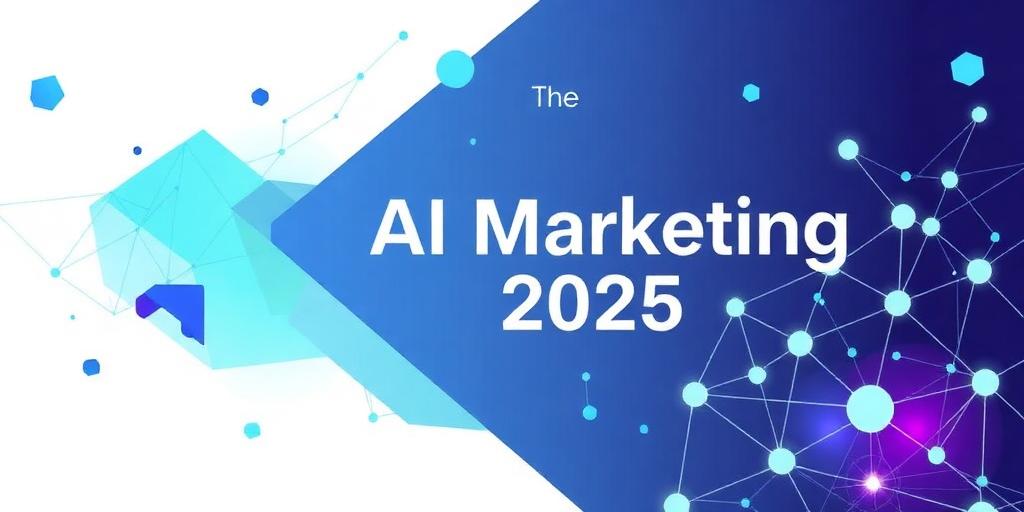AI Tools Every Marketer Should Try in 2025
The marketing landscape is perpetually evolving, and 2025 promises to be no different. Artificial intelligence (AI) is no longer a futuristic concept; it's a present-day necessity for marketers looking to gain a competitive edge. This article highlights essential AI tools that marketers should consider integrating into their strategies in 2025.
1. AI-Powered Content Creation Platforms
Content remains king, but consistently producing high-quality, engaging content can be time-consuming. AI-driven content creation platforms are designed to assist marketers in generating various content formats, including blog posts, social media updates, and email marketing campaigns. These tools utilize natural language processing (NLP) to understand context and create compelling narratives. Expect enhanced personalization and efficiency in content creation, allowing marketers to focus on strategy and creativity.
2. Predictive Analytics for Customer Behavior
Understanding customer behavior is crucial for effective marketing. Predictive analytics tools use machine learning algorithms to analyze vast datasets and forecast future trends. By identifying patterns and predicting customer actions, marketers can optimize their campaigns for maximum impact. This involves tailoring messaging, timing, and channels to match individual customer preferences, resulting in improved engagement and conversion rates.
3. AI-Enhanced SEO Tools
Search engine optimization (SEO) remains a critical component of digital marketing. In 2025, AI-enhanced SEO tools will offer deeper insights into keyword performance, competitor analysis, and algorithm updates. These tools can automate tasks such as keyword research and link building, while also providing strategic recommendations to improve search rankings. Staying ahead in SEO requires continuous adaptation, and AI will be instrumental in navigating the complexities of search engine algorithms.
4. Chatbots and Virtual Assistants
Customer service and engagement are paramount in building brand loyalty. AI-powered chatbots and virtual assistants will become even more sophisticated, offering personalized support and instant responses to customer inquiries. These tools can handle a wide range of tasks, from answering frequently asked questions to providing product recommendations. By automating routine interactions, marketers can free up their teams to focus on more complex and strategic initiatives.
5. AI-Driven Social Media Management
Managing social media effectively requires constant monitoring and engagement. AI-driven social media management tools automate tasks such as content scheduling, sentiment analysis, and influencer identification. These tools can analyze conversations and trends to identify opportunities for brand promotion and engagement. Furthermore, they can detect and respond to potential crises in real-time, safeguarding brand reputation.
6. Personalization and Recommendation Engines
Personalization is key to delivering relevant and engaging experiences. AI-powered personalization and recommendation engines analyze user data to provide tailored recommendations across various channels. Whether it's suggesting products on an e-commerce site or customizing content in an email, these tools enhance the customer journey. By delivering personalized experiences, marketers can improve customer satisfaction and drive sales.
7. Automated Email Marketing
Email marketing remains a powerful channel for nurturing leads and driving conversions. AI-driven email marketing tools automate tasks such as segmentation, A/B testing, and send-time optimization. These tools analyze user behavior to determine the best time to send emails and personalize content based on individual preferences. By automating and optimizing email campaigns, marketers can improve deliverability, engagement, and ROI.
Conclusion
As we approach 2025, AI will continue to transform the marketing landscape. The tools mentioned above represent a fraction of the potential applications of AI in marketing. By embracing these technologies, marketers can enhance their efficiency, improve their decision-making, and deliver more personalized and engaging experiences. Staying informed and adaptable is essential for succeeding in the age of AI. The future of marketing is here, and it's powered by artificial intelligence.









